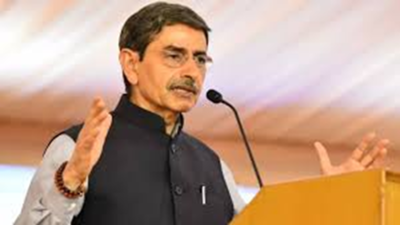National Anthem Controversy in Tamil Nadu Assembly
On January 6, 2025, Tamil Nadu’s Governor R.N. Ravi left the Legislative Assembly without delivering his customary address. His departure stemmed from the absence of the national anthem before his scheduled speech. This incident echoes a similar refusal from the previous year, raising questions about protocol and respect for national symbols.
Background of the Incident
The Tamil Nadu Raj Bhavan claimed that the Constitution and the national anthem were disrespected in the Assembly. The Governor’s office emphasised that respecting the national anthem is a fundamental duty outlined in the Constitution of India. The Raj Bhavan expressed deep concern over the omission, stating that such disrespect would not be tolerated.
Tamil Nadu Government’s Defence
The Tamil Nadu government defended its practice of playing the State anthem, Tamil Thai Vazhthu, at the beginning of the Governor’s address. This protocol was established in July 1991 during the AIADMK government’s tenure under Chief Minister Jayalalithaa. The national anthem is traditionally played at the end of the address, a practice that has been accepted in the Assembly for decades.
National Anthem Practices in Other States
Legislative Assemblies across India have varied practices regarding the national anthem. For example, Nagaland did not play the anthem for decades until it was first performed in February 2021, while Tripura introduced it in March 2018. These differences highlight the lack of a uniform practice across states.
National Anthem Protocol in Parliament
In the Indian Parliament, a distinct protocol exists for the President’s address. Upon the President’s arrival, a band plays the national anthem. After the address, the anthem is played again as the President departs. This formal procedure puts stress on the importance of the national anthem in parliamentary proceedings.
Constitutional Mandate on National Anthem
Section 51(A)(a) of the Constitution of India outlines the fundamental duties of citizens, including respect for the national anthem and flag. This legal framework establishes a clear expectation for citizens and officials alike, reinforcing the significance of national symbols in public life.
Ministry of Home Affairs Guidelines
The Ministry of Home Affairs has issued guidelines stipulating when the national anthem must be played. These occasions include civil and military ceremonies, parades, and formal state functions. The guidelines also specify when mass singing of the anthem is required, ensuring its prominence during events.
- AIADMK – Dravidian political party in Tamil Nadu.
- Bhishma Narain Singh – Former Governor of Tamil Nadu.
- Tamil Thai Vazhthu – State anthem of Tamil Nadu.
- R.N. Ravi – Current Governor of Tamil Nadu.
- Fundamental Duties – Enshrined in the Constitution of India.
Legal Implications of Anthem Non-Compliance
In a notable case from January 2019, a citizen petitioned the Madras High Court over the absence of the national anthem at a public function. The court dismissed her petition, citing the absence of a legal mandate for the anthem’s performance. This ruling marks the distinction between customary practices and enforceable laws regarding the national anthem.
Month: Current Affairs - January, 2025
Category: Legal & Constitution Current Affairs






